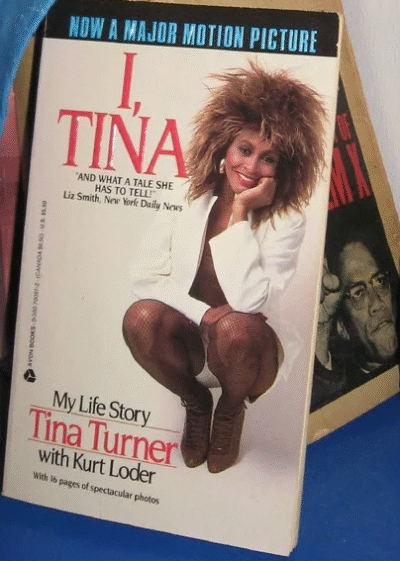When Black and Indigenous Women Are Called “Hateful” for Demanding Safety For centuries, whenever Black and Indigenous women raised their voices fo

I, Tina – My Life Story, by Tina Turner
When Black and Indigenous Women Are Called “Hateful” for Demanding Safety
For centuries, whenever Black and Indigenous women raised their voices for safety, they were met with the same accusation: “angry,” “hateful,” “troublemakers.”
This silencing tactic on US soil: from slavery and colonization to the present day.
Black Women
Enslavement: Black women resisting sexual violence or protecting their children were punished as “defiant” or “wicked.”
Reconstruction & Jim Crow: Women like Ida B. Wells were called hateful for documenting lynchings and demanding protection.
Civil Rights Era: Black women leaders who shielded children in schools and buses were accused of being “angry” or “too aggressive.”
Indigenous Women
Colonization: Indigenous women resisting rape, land theft, and child removal were branded “savage” or “vengeful.”
Boarding Schools: Mothers protesting the forced removal of their children were accused of being “unfit” or “uncaring.”
20th Century Movements: Women demanding justice for missing and murdered Indigenous sisters were dismissed as “radicals.”
Today: Land and water protectors are called “angry activists” as they defend future generations.
⚖️ The Cost of False Labels
These accusations do more than insult:
They shift the focus from danger to women’s tone.
They protect violent systems, not vulnerable people.
🌿 The Reality
When Black and Indigenous women demand safety, it is not hate—it is love.
Love for children.
Love for land and community.
Love rooted in survival, legacy, and dignity.
Their voices are not threats. Their voices are shields.
When women speak up for safety, they are not “spreading hate”—they are naming harm and asking for protection. Labeling women “hateful” for demanding safety is both dishonest and dangerous.
🚫 Why It’s Wrong
It silences truth-telling
Calling women “hateful” shifts the focus from the real issue (safety) to tone-policing their voices. It punishes women for daring to name danger.It protects abusers, not victims
When leaders dismiss women’s concerns as “hate,” they give cover to those causing harm—making it harder to hold predators, exploiters, and corrupt systems accountable.It deepens vulnerability
Women, girls, the elderly, disabled people, and marginalized groups are already at higher risk when safety is neglected. Silencing them adds another layer of danger.It distorts leadership
True leadership listens—even when the truth is uncomfortable. Leaders who label safety demands as “hate” trade integrity for convenience.
🌟 What Safety Advocacy Really Is
Love for community.
Wisdom from lived experience and experts with professional integrity.
Courage to speak when silence is easier.
✨ Reflection Question
When women call for safety, do I hear them as enemies—or as protectors trying to guard life?
💬 Affirmation
“My voice for safety is not hate—it is love, courage, and truth.”
“My call for safety is not hate—it is ancestral love, survival, and truth. I stand with the women who refused to be silenced, and I continue their legacy.”